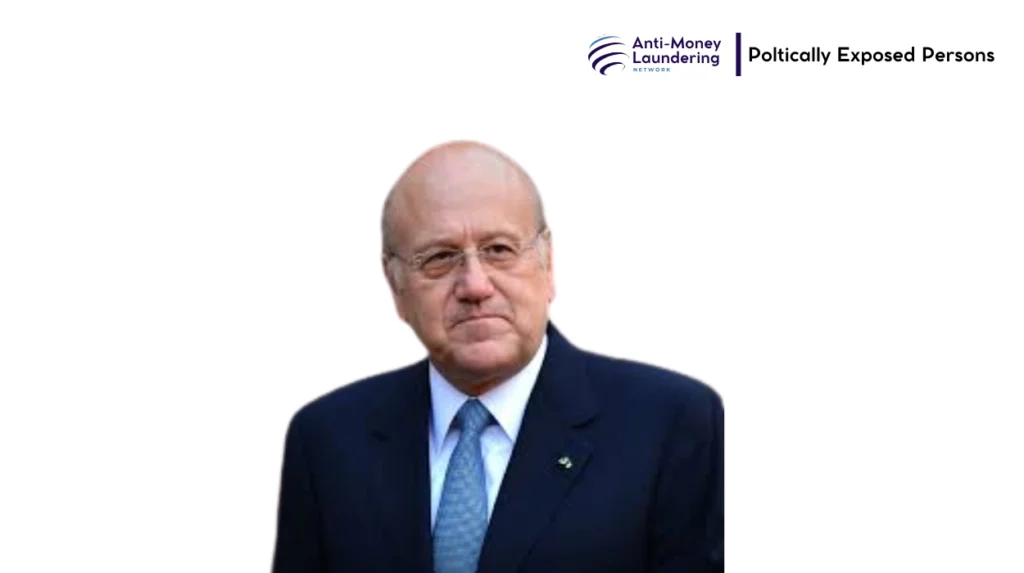Najib Mikati is a key figure in Lebanese politics and business, known for his multiple tenures as Prime Minister of Lebanon and his significant business empire. Born in Tripoli, Lebanon, he has emerged as one of the richest individuals in the country. His leadership often intersects with Lebanon’s complex sectarian politics and economic challenges. While his net worth and influence are widely acknowledged, he also faces scrutiny regarding allegations of corruption and financial opacity, making his profile critical in discussions on political and financial accountability.
Early Life and Background
Najib Mikati was born on November 24, 1955, in the city of Tripoli, Lebanon. He holds Lebanese nationality and follows Sunni Islam, aligning with Lebanon’s sectarian political structure where the Prime Ministership is traditionally held by a Sunni Muslim. After completing his education at the American University of Beirut, where he studied Business Administration, Mikati pursued further studies at international institutions including INSEAD and Harvard University. His strong educational background laid the foundation for his successful business ventures and political career.
Personal Life
The Najib Mikati family occupies an influential place within Lebanon’s socioeconomic elite. He is married and has children, many of whom are involved in managing family business interests, underscoring the integration of family and entrepreneurial success. Together with his brother, Taha Mikati, the family is recognized as one of the wealthiest in Lebanon, contributing to the broader narrative of Lebanon’s richest families shaping its economy and politics. This affirms their status among the seven influential families of Lebanon controlling much of the country’s wealth and power.
Career and Achievements
Holding the position of Prime Minister on three separate occasions — 2005, 2011-2014, and 2021-2025 — Najib Mikati has played a pivotal role in Lebanese governance during critical periods. His governments have grappled with post-war reconstruction, sectarian tensions, and a deepening economic crisis. Mikati’s political alliances, including relationships with political groups such as Hezbollah, reflect the intricate balancing act within Lebanon’s confessional political system.
His business achievements are equally remarkable. As co-founder of Investcom, which was sold to MTN Group for $5.5 billion, he solidified his status as a billionaire. His net worth, estimated at $2.8 billion, places him among the richest in Lebanon and exemplifies why Lebanese elites often maintain substantial wealth through diversified interests. This wealth accumulation reflects broader trends explaining why Lebanese are so wealthy, as many have leveraged family firms and regional commerce.
Lifestyle, Wealth, and Assets
The lifestyle of Najib Mikati mirrors his immense financial success. He owns property and luxury assets worldwide, including mansions and yachts, showcasing the opulence typical of Lebanon’s billionaire families. The Mikati family’s wealth positions them among the most powerful economic elites in Lebanon, often cited alongside other leading figures who constitute the richest families in Lebanon. Their investments extend across sectors such as telecommunications, real estate, and aviation, reinforcing their broad economic influence.
Influence, Legacy, and Global Recognition
Najib Mikati embodies the role of a traditional political and economic heavyweight in Lebanon. His leadership and business acumen have placed him among the country’s most affluent and recognized figures. Globally, he is listed among Lebanese billionaires by major outlets like Forbes, underpinning Lebanon’s reputation for producing a disproportionate number of wealthy individuals relative to its size.
Though Lebanon does not have any known trillionaires, the regional context includes immense fortunes in the Middle East, highlighting the contrast between broader Gulf wealth and the concentrated fortunes in Lebanon. Mikati’s legacy is intertwined with Lebanon’s elite class, which remains central in shaping political and economic outcomes.
Financial Transparency and Global Accountability
As a Politically Exposed Person (PEP), Najib Mikati faces heightened expectations for transparency and accountability. Despite his considerable wealth and political influence, Mikati has confronted allegations and investigations related to corruption and the misuse of state resources. These concerns are symptomatic of Lebanon’s systemic challenges, where elite impunity and weak judicial oversight often undermine efforts to curb financial misconduct.
International scrutiny, including legal inquiries in France and Monaco, reflects ongoing attempts to bring greater transparency to Mikati’s financial dealings. However, domestic political protections have often insulated him, illustrating the difficulties in enforcing accountability among Lebanon’s ruling families.
Najib Mikati is a figure whose life encapsulates the complex intersection of political power, wealth, and sectarian identity in Lebanon. While his business success and political roles have earned him global recognition and influence, persistent questions over financial transparency and governance challenge his legacy. Understanding Mikati’s career provides insight into Lebanon’s broader struggles with corruption, economic disparity, and political reform, making his profile indispensable in the study of Lebanon’s elite and political landscape.

